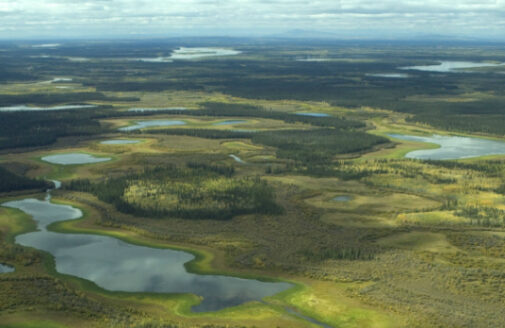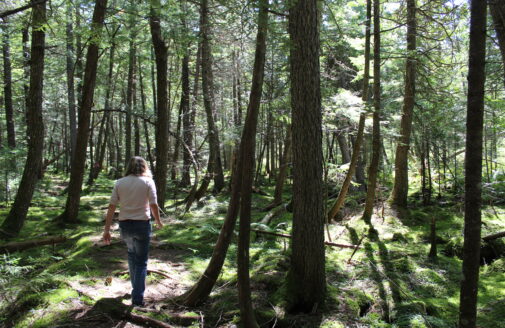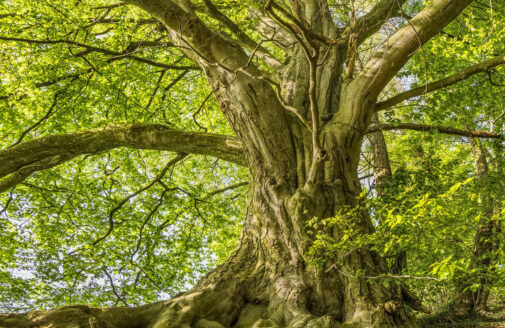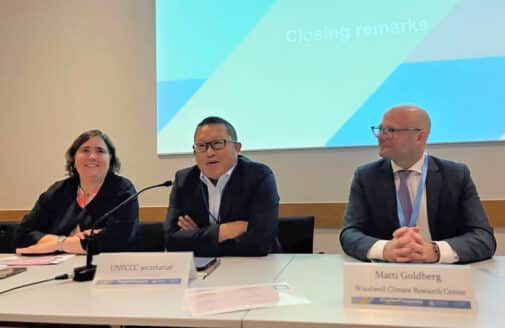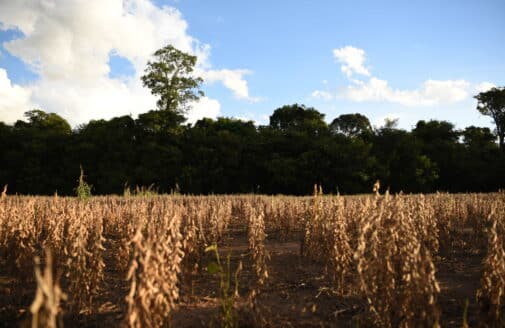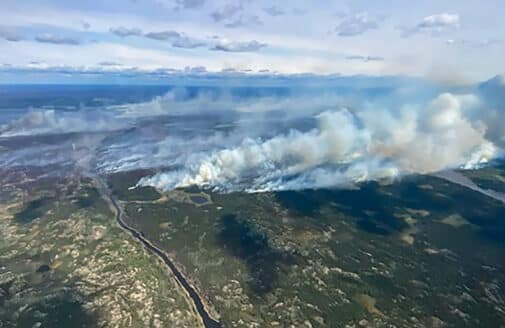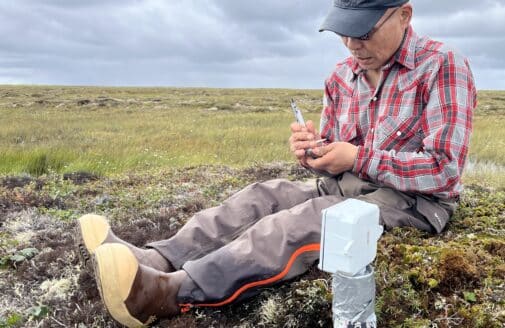Informing U.S. forest policy with science
Dr. Rich Birdsey brings decades of forestry expertise to bear on recent forest policy initiatives
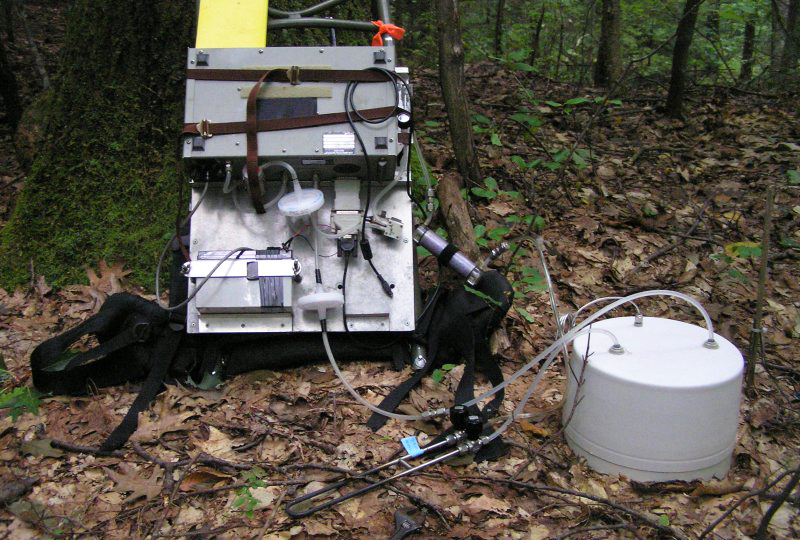
Carbon-14 sampling in Harvard Forest, Massachusetts.
photo courtesy of Kathleen Savage
Woodwell Senior Scientist Dr. Rich Birdsey has contributed his decades-long expertise in forestry and climate issues to two new U.S.-based forest policy initiatives. Working on both the state and federal level, Birdsey is helping to expand the influence of science in policy planning.
Federal forest policy
On July 20, Woodwell Climate submitted a response to the U.S. Forest Service’s request for public input into how they can adapt current policies and develop new ones to support the conservation of the country’s forests and increase their resilience in the face of climate change. The push for new rulemaking within the agency is a direct response to President Biden’s recent executive order: Strengthening the Nation’s Forests, Communities, and Local Economies.
Protecting forests is a crucial emissions mitigation strategy both within the US and globally. Forests, particularly mature and old-growth stands, contain centuries-worth of stored carbon and continue to sequester more each year. Loss of these precious forests releases stored carbon and reduces future carbon sequestration.
In the public comment, Birdsey, who led the drafting effort, emphasizes the importance of protecting mature and old-growth forests, stating, “When climate benefits are explicitly considered, the research points strongly to letting these forests grow—protecting and expanding the massive portion of sequestered carbon they represent. One of the largest threats facing mature and old-growth forests in the US is logging, which is a threat that humans can reduce instantly, simply by changing policy.”
Forest protection on the state level
Birdsey has also been named a scientific expert on a committee charged with helping draft Massachusetts’ forest policies. A new state initiative, called “Forests as Climate Solutions” looks to expand existing forest conservation activities and develop new forest management guidelines that can help Massachusetts meet its climate goal of achieving net-zero greenhouse gas emissions by 2050. The science committee will be responsible for providing input into the state’s proposals and assessing their effectiveness as climate solutions.
“Forests have to be at the forefront of our climate strategy,” said Massachusetts Climate Chief Melissa Hoffer. “Trees can sequester carbon for centuries—we have a responsibility to use the best science to ensure that their potential for carbon sequestration and storage is reflected in our approach.
Birdsey’s hope is that the policies developed by the new initiative will help Massachusetts take full advantage of its naturally carbon-rich forests.
“Massachusetts forests have some of the highest carbon stocks in the Eastern U.S., and I hope that policies enacted through this initiative will strengthen protection of older forests and large trees and foster management of younger forests to attain old-growth characteristics, while maintaining the current level of timber supplies,” says Birdsey.
Both policy initiatives present an important opportunity to set forest management on the right track towards achieving emissions reductions in years to come.
“Massachusetts’ forests have the potential to accumulate and store enough additional carbon to compensate for as much as 10% of the State’s current emissions from burning fossil fuels,” says Birdsey. “With climate-smart forests, Massachusetts can be a national climate leader.”




